The Eagle's Mile
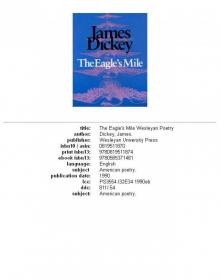

Author: James Dickey
Category: Literature
Published: 1990
Series:
View: 109
Read Onlineames Dickey, the Carolina Professor and poet-in-residence at the University of South Carolina, continues to examine the relationship of man and nature in "The Eagle's Mile." That same relationship appears, with many nuances about myth and machismo, in his novel and film, "Deliverance." The title poem in his new collection is dedicated to the late Justice William O. Douglas, a noted outdoorsman. Mr. Dickey's verse meanders down the page in rivulets that eventually join together in a rushing mainstream of language:
Where Douglas you once walked in a white shirt as a man
In the early fall, fire-breathing with oak-leaves,
Your patched tunnel-gaze exactly right
For the buried track
Mr. Dickey, who loves to link words, tells a tale of Manhattan that is alternately amusing and frightening in a poem called "Spring-Shock." In it, a driver rolls down a car window; his voice is "home-born Southern." A potential mugging seems to be in the spring air. The passenger-narrator, "manhandling my overcoat," slides into the car and orders him to go to the St. Moritz Hotel. The poet emerges in a single phrase that breaks into the narrative: Central Park South is described as "A war-safety zone." Then something happens between mugger and victim that raises the poem into a surprising statement of courage.
The waiting room in a maternity ward is perfectly re-created in a poem called "Daughter." The clock in the room is unwound; the hospital is a place of "plastic, manned rubber and wrong light." And then:
A doctor with a blanket
Comes round a blind corner.
"Who gets this little girl?"
I peer into wool: a creature
Somewhat strangely more than red.
Dipped in fire.
In all the poems in "The Eagle's Mile," original phrases stop the reader's eye on the page: "No emergency but birth." An overweight man's "pizza-fed fury." Houses in Los Angeles that are made of "packaged hard candy." A race in which a middle-aged man is "a world-class second."
In "The Eagle's Mile," James Dickey continues to extend his vision as a major American poet.
NY Times - book review October 27, 1990
Where Douglas you once walked in a white shirt as a man
In the early fall, fire-breathing with oak-leaves,
Your patched tunnel-gaze exactly right
For the buried track
Mr. Dickey, who loves to link words, tells a tale of Manhattan that is alternately amusing and frightening in a poem called "Spring-Shock." In it, a driver rolls down a car window; his voice is "home-born Southern." A potential mugging seems to be in the spring air. The passenger-narrator, "manhandling my overcoat," slides into the car and orders him to go to the St. Moritz Hotel. The poet emerges in a single phrase that breaks into the narrative: Central Park South is described as "A war-safety zone." Then something happens between mugger and victim that raises the poem into a surprising statement of courage.
The waiting room in a maternity ward is perfectly re-created in a poem called "Daughter." The clock in the room is unwound; the hospital is a place of "plastic, manned rubber and wrong light." And then:
A doctor with a blanket
Comes round a blind corner.
"Who gets this little girl?"
I peer into wool: a creature
Somewhat strangely more than red.
Dipped in fire.
In all the poems in "The Eagle's Mile," original phrases stop the reader's eye on the page: "No emergency but birth." An overweight man's "pizza-fed fury." Houses in Los Angeles that are made of "packaged hard candy." A race in which a middle-aged man is "a world-class second."
In "The Eagle's Mile," James Dickey continues to extend his vision as a major American poet.
NY Times - book review October 27, 1990
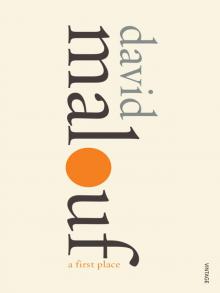 A First Place
A First Place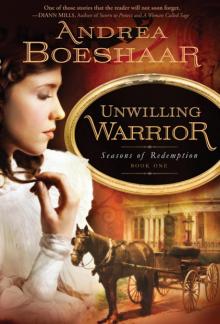 Unwilling Warrior
Unwilling Warrior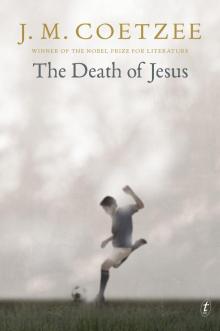 The Death of Jesus
The Death of Jesus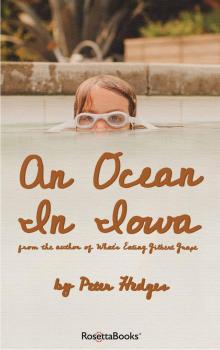 An Ocean in Iowa
An Ocean in Iowa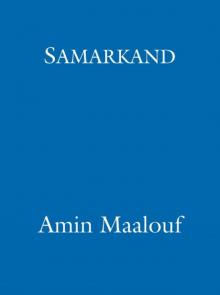 Samarkand
Samarkand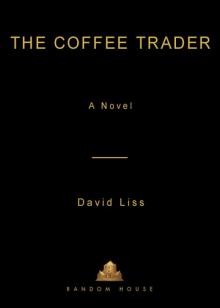 The Coffee Trader
The Coffee Trader Tales From the Decameron of Giovanni Boccaccio
Tales From the Decameron of Giovanni Boccaccio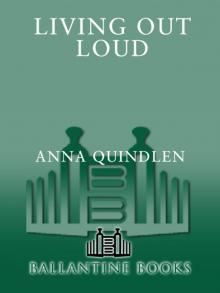 Living Out Loud
Living Out Loud